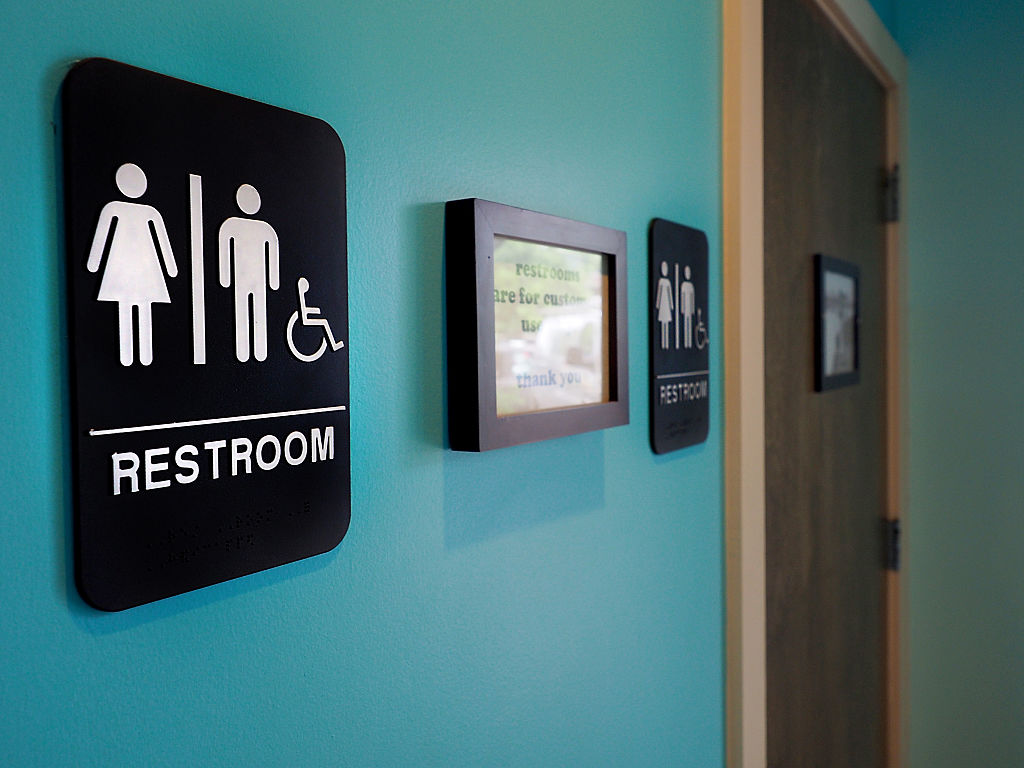
The Trump administration’s letter this week revoking protections for transgender students does not directly change schools’ existing policies — but transgender students and LGBT rights advocates say the action sends a message that the highest political office in the U.S. does not support transgender rights.
The administration’s letter rescinds guidance that came under former President Obama instructing schools to allow transgender students access to bathrooms and other facilities that aligned with their gender identity. But any enforcement of those guidelines was already on hold even before this week, after 13 states accused the Obama administration of overstepping its bounds and a federal judge in Texas temporarily blocked it late last year.
Now, states are largely left where they started — guided by state law, if there is one that addresses the rights of transgender students, and otherwise able to make up their own minds about how to treat transgender students in public schools. And that, according to advocates like Sarah Warbelow, legal director at the Human Rights Campaign, is a problem.
“We worry that it encourages states and local governments to behave badly toward transgender people,” Warbelow said.
Fourteen states have passed their own non-discrimination laws to protect transgender students, Warbelow said, and political leaders in many of those states publicly opposed the Trump administration’s decision this week, including in Washington, Connecticut, California, New Mexico, New York and Minnesota.
There remains a risk of litigation, but advocates worry that the move by Trump’s Justice Department will embolden states, cities or school districts to require that transgender students use the bathrooms that align with the sex assigned to them at birth, even if enforcement of such policies is difficult. The prospect of singling out transgender students is harmful to children, advocates say, noting that they already face misunderstanding and bullying. In Virginia, the Gloucester County School Board— which was sued by 17-year-old student Gavin Grimm after he was blocked from using the boys’ restroom two years ago — said it was “pleased” by the government withdrawing the guidance. The school board is set to defend its policy before the Supreme Court next month.
Legal advocates say they believe that regardless of the Trump administration’s guidance, transgender kids are still protected under Title IX, which prohibits sex discrimination in education, and they plan to fight for those protections in states that aren’t already offering them.
“What the administration did yesterday was just another moment where they are once again attacking a vulnerable community in this country, and this time, it’s transgender youths,” said Kris Hayashi, executive director of the Transgender Law Center. “It’s just horrendous and shameful that government officials and politicians use their power to target students, target transgender people who are just trying to go to school.” Transgender activist Caitlyn Jenner called the Trump administration’s move a “disaster.”
White House Press Secretary Sean Spicer defended the Trump administration’s decision this week, saying the Obama-era interpretation of Title IX was flawed.
Holly Montemayor, a transgender student in Minnesota who dropped out of school because of continuous bullying, is worried that the Trump administration’s letter will make things worse for transgender kids.
“I think it’s going to enable more bigotry to happen to transgender students,” Montemayor said.
Montemayor, who is now 18, came out in 2012 at the age of 13. The staff at her middle school said she could not use the girls’ restroom, she said, leading her peers to ask invasive questions and stare at her when she went to the bathroom. Although she was allowed to use the women’s restroom in high school, Montemayor said she started receiving death threats from other students. The emotional toll caused her grades to suffer; she dropped out in 2016 and is pursuing her G.E.D.
Her father, Ramon Montemayor, said the Obama-era guidance sent a powerful message of inclusion to school administrators who may not have been familiar with the challenges facing transgender kids.
“I didn’t know anything about this topic when Holly came out,” he said. “We became educated and fully supportive. Those guidelines that have been reversed — they would be very helpful to have them for schools. They would go a long way.”
More Must-Reads From TIME
- Dua Lipa Manifested All of This
- Exclusive: Google Workers Revolt Over $1.2 Billion Contract With Israel
- Stop Looking for Your Forever Home
- The Sympathizer Counters 50 Years of Hollywood Vietnam War Narratives
- The Bliss of Seeing the Eclipse From Cleveland
- Hormonal Birth Control Doesn’t Deserve Its Bad Reputation
- The Best TV Shows to Watch on Peacock
- Want Weekly Recs on What to Watch, Read, and More? Sign Up for Worth Your Time
Write to Mahita Gajanan at mahita.gajanan@time.com